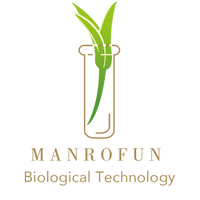What is the production process of daily chemical fragrances?

The production process of daily chemical fragrances is a complex and delicate process involving the processing of natural plant extracts and the preparation of chemically synthesized fragrances. These fragrances are widely used in daily chemical products such as shampoo, shower gel, laundry detergent, etc., giving these products a unique fragrance. The following will introduce the production process of daily chemical fragrances in detail.
First of all, the production process of daily chemical fragrances is usually divided into three main steps: raw material preparation, extraction or synthesis of fragrances, and formulation and mixing. These three steps not only determine the final fragrance characteristics of the fragrance, but also directly affect its stability and use effect.
Raw material preparation is the first step in the production of fragrances and is also a crucial link. At this stage, the technician needs to select suitable raw materials according to the required fragrance characteristics and the final use of the product. These raw materials can be natural plant extracts such as rose petals, citrus peels, vetiver, bark, etc., or chemically synthesized fragrances such as musk, vanillin, citronellal, etc. After selecting the appropriate raw materials, they must be treated as necessary to ensure their purity and effectiveness. The processing process may include operations such as removing impurities, drying, soaking, and crushing. The quality of these steps is directly related to the final quality of the flavor.
The extraction or synthesis of flavors is the core part of the entire production process. There are many ways to extract natural flavors, among which distillation, soaking, and cold soaking extraction are the most common. The distillation method uses the steam generated by the raw materials during the heating process to collect the aroma components through condensation. The soaking method puts the raw materials into a solvent, dissolves the aroma components into the solvent, and then separates the aroma components by distillation or filtration. Cold soaking extraction is a soaking process carried out under low temperature conditions, which can better retain the aroma components in the raw materials and is not easily destroyed by high temperature. For chemically synthesized flavors, the production process is more complicated, usually requiring a series of chemical reactions such as esterification, oxidation, reduction, etc., to finally obtain compounds with specific aromas.
Formulation and mixing are the last step in the production of flavors and are also important links in determining the quality of the final finished product of the flavor. At this stage, the craftsman will mix the extracted or synthesized flavors according to a specific formula ratio according to the needs of the product. These mixtures include not only spices, but also ingredients such as diluents, stabilizers, solvents and antioxidants to ensure the stability and durability of the flavors. The mixing process usually uses technical means such as mechanical stirring, oscillation or ultrasonic mixing to ensure that the spices are evenly distributed throughout the flavor to avoid uneven concentration problems.
In the production process of flavors, special attention should be paid to several key points. The first is the quality control of raw materials, ensuring that the raw materials used are fresh, pure and stable, which is the basis for ensuring the quality of flavors. The second is the strict control of process parameters, such as temperature, pressure and time. These parameters directly affect the extraction efficiency and synthesis quality of spices. Finally, the finished flavors need to undergo a variety of tests, including physical, chemical and sensory tests, to ensure that they meet the relevant quality standards. These tests include not only the evaluation of the purity, intensity and durability of the aroma, but also the testing of product safety and stability to ensure the effectiveness and safety of the flavors in practical applications.
In general, the production process of daily chemical flavors is a complex process, covering all aspects from raw material preparation to spice extraction or synthesis to formula mixing. In each link, the raw materials and processes need to be strictly controlled and inspected to ensure the high quality and safety of the final product. It is through these precise operations that the fragrance of daily chemical products can show its unique fragrance charm in the market and add infinite appeal to various daily chemical products.
First of all, the production process of daily chemical fragrances is usually divided into three main steps: raw material preparation, extraction or synthesis of fragrances, and formulation and mixing. These three steps not only determine the final fragrance characteristics of the fragrance, but also directly affect its stability and use effect.
Raw material preparation is the first step in the production of fragrances and is also a crucial link. At this stage, the technician needs to select suitable raw materials according to the required fragrance characteristics and the final use of the product. These raw materials can be natural plant extracts such as rose petals, citrus peels, vetiver, bark, etc., or chemically synthesized fragrances such as musk, vanillin, citronellal, etc. After selecting the appropriate raw materials, they must be treated as necessary to ensure their purity and effectiveness. The processing process may include operations such as removing impurities, drying, soaking, and crushing. The quality of these steps is directly related to the final quality of the flavor.
The extraction or synthesis of flavors is the core part of the entire production process. There are many ways to extract natural flavors, among which distillation, soaking, and cold soaking extraction are the most common. The distillation method uses the steam generated by the raw materials during the heating process to collect the aroma components through condensation. The soaking method puts the raw materials into a solvent, dissolves the aroma components into the solvent, and then separates the aroma components by distillation or filtration. Cold soaking extraction is a soaking process carried out under low temperature conditions, which can better retain the aroma components in the raw materials and is not easily destroyed by high temperature. For chemically synthesized flavors, the production process is more complicated, usually requiring a series of chemical reactions such as esterification, oxidation, reduction, etc., to finally obtain compounds with specific aromas.
Formulation and mixing are the last step in the production of flavors and are also important links in determining the quality of the final finished product of the flavor. At this stage, the craftsman will mix the extracted or synthesized flavors according to a specific formula ratio according to the needs of the product. These mixtures include not only spices, but also ingredients such as diluents, stabilizers, solvents and antioxidants to ensure the stability and durability of the flavors. The mixing process usually uses technical means such as mechanical stirring, oscillation or ultrasonic mixing to ensure that the spices are evenly distributed throughout the flavor to avoid uneven concentration problems.
In the production process of flavors, special attention should be paid to several key points. The first is the quality control of raw materials, ensuring that the raw materials used are fresh, pure and stable, which is the basis for ensuring the quality of flavors. The second is the strict control of process parameters, such as temperature, pressure and time. These parameters directly affect the extraction efficiency and synthesis quality of spices. Finally, the finished flavors need to undergo a variety of tests, including physical, chemical and sensory tests, to ensure that they meet the relevant quality standards. These tests include not only the evaluation of the purity, intensity and durability of the aroma, but also the testing of product safety and stability to ensure the effectiveness and safety of the flavors in practical applications.
In general, the production process of daily chemical flavors is a complex process, covering all aspects from raw material preparation to spice extraction or synthesis to formula mixing. In each link, the raw materials and processes need to be strictly controlled and inspected to ensure the high quality and safety of the final product. It is through these precise operations that the fragrance of daily chemical products can show its unique fragrance charm in the market and add infinite appeal to various daily chemical products.

